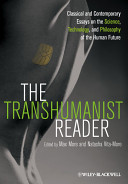The Unmentioned Trade-Offs in Life Extention
Now it is not that the cell biologists can’t point to experiments which seem to fit their views, as is common in natural science. (After all, the Earth’s Moon does indeed have a geocentric orbit.) Good colleagues of mine like Robert Reis are able to produce nematode worms that live ten times longer than their unmutated controls, if they use ingenious genetic and environmental manipulation. But nematodes have well-developed physiological machinery for sustaining states of metabolic arrest, in which they can survive for very long periods of drought or starvation. The available evidence suggests that such capacities can be genetically altered for the purpose of keeping adult nematodes alive for remarkably long periods. But such mutants have greatly reduced reproduction, and reduced competitive ability. The Methuselah mice that have been produced by mutation are miniaturized, and lack the ability to sustain their body temperature unaided by a normal “nurse” mouse. They are so deficient in competitive ability that normal mice kill them unless the miniatures are protected. A simple way of describing this pattern is to realize that these laboratory monstrosities have extended lifespan, but impaired “healthspan.” They last longer, but do so in exchange for “living” less. Similar results can be achieved by castrating Pacific salmon or deflowering soybean. There is even evidence that castrating adult men increases their lifespan by a significant amount.
Notes:
From Michael R. Rose's "Immortalist Fictions and Strategies"
Folksonomies: immortality medicine life extension
Taxonomies:
/business and industrial/agriculture and forestry/crops and seed (0.409322)
/science/physics/space and astronomy (0.396201)
/art and entertainment/comics and animation/comics (0.393080)
Keywords:
Michael R. Rose (0.968765 (neutral:0.000000)), well-developed physiological machinery (0.961680 (negative:-0.304498)), long periods (0.946615 (negative:-0.556755)), reduced competitive ability (0.937505 (negative:-0.475656)), remarkably long periods (0.933988 (neutral:0.000000)), geocentric orbit (0.758183 (neutral:0.000000)), Life Extention (0.755290 (neutral:0.000000)), Unmentioned Trade-Offs (0.750093 (neutral:0.000000)), Immortalist Fictions (0.725941 (positive:0.397654)), cell biologists (0.721019 (positive:0.442294)), Methuselah mice (0.719511 (neutral:0.000000)), natural science (0.706038 (positive:0.435722)), Robert Reis (0.704203 (neutral:0.000000)), metabolic arrest (0.700569 (negative:-0.304498)), nematode worms (0.700345 (neutral:0.000000)), adult nematodes (0.698249 (neutral:0.000000)), Good colleagues (0.695451 (neutral:0.000000)), normal mice (0.695281 (negative:-0.721453)), laboratory monstrosities (0.686711 (negative:-0.353865)), environmental manipulation (0.682295 (negative:-0.276687)), unmutated controls (0.680977 (neutral:0.000000)), available evidence (0.674964 (neutral:0.000000)), Similar results (0.658306 (positive:0.215947)), body temperature (0.657127 (negative:-0.461263)), Pacific salmon (0.654969 (positive:0.215947)), simple way (0.651828 (negative:-0.353865)), adult men (0.647629 (positive:0.535738)), lifespan (0.548156 (positive:0.181873)), starvation (0.472943 (negative:-0.556755)), drought (0.463086 (negative:-0.556755))
Entities:
castrating Pacific:GeographicFeature (0.793246 (positive:0.215947)), Michael R. Rose:Person (0.624227 (neutral:0.000000)), Robert Reis:Person (0.598788 (neutral:0.000000))
Concepts:
Biology (0.947991): dbpedia | freebase | opencyc
Nematode (0.785168): dbpedia | freebase | opencyc
Genetics (0.769581): dbpedia | freebase | opencyc
Earth (0.700695): dbpedia | freebase
Caenorhabditis elegans (0.688406): dbpedia | freebase
Gene (0.660235): dbpedia | freebase
Model organism (0.644320): dbpedia | freebase
Cell (0.635960): dbpedia | freebase






